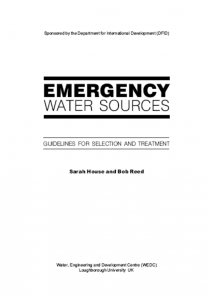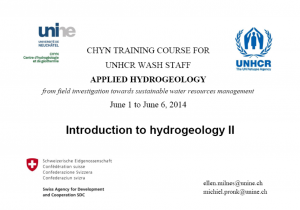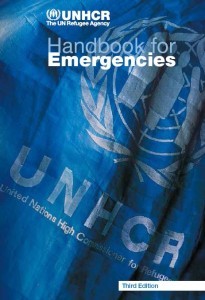
These guidelines have been designed to help those involved in the assessment of emergency water sources to collect relevant information in a systematic way, to use this information to select a source or sources and to determine the appropriate level of treatment required to make the water suitable for drinking.

This 289 page document provides and extensive introduction to applied hydrology and includes the following chapters: Introduction to the training course; Introduction to hydrogeology I; Introduction to hydrogeology II; Basic concepts of groundwater exploration; Bacteriological analysis of water; Basic concepts of groundwater protection; Basic concepts of aquifer characterisation: pumping tests; Well construction and rehabilitation
Recharge quantification in semi-arid areas with remote sensing;

The UNHCR WASH Manual is a comprehensive and authoritative reference document for WASH interventions in refugee settings, built upon the experience of UNHCR and WASH organisations.
Tags: Bloody Diarrhoea, Communicable Disease Control, Community Led Total Sanitation (CLTS), Desludging and Excreta Transportation, Excreta / Urine ReUse, Excreta Composting, Hygiene Behaviour Change, Landfill Management, Malaria, Medical Waste Management, Menstruation Hygiene Management, Public Health, Sewerage and Excreta Conveyance, Waste Recycling , Reuse and Reduction, Water Prospection and Investigation, Water Prospection and Investigation, Water Prospection and Investigation, Water Pumping, Water Pumping, Water Safety Plans, Water Safety Plans, and Watery Diarrhoea.
 English
English




